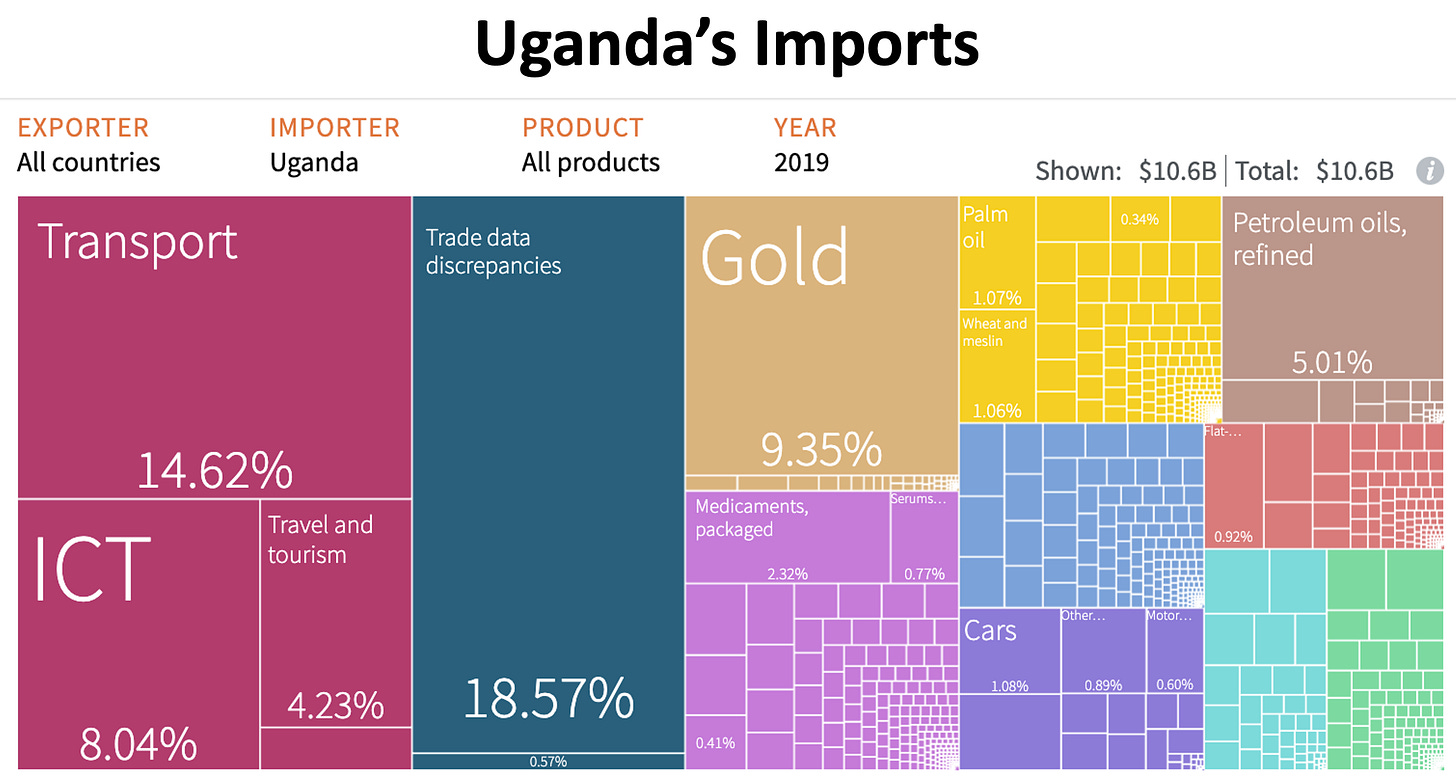Greetings from the Pearl of Africa!
Today, I had a very productive visit to Kampala, Uganda, the Pearl of Africa, with my dear friend Julius Mucunguzi (we were colleagues in Addis Ababa, Ethiopia). I had two long deep-dive conversations with senior government officials, Minister of State for Industry, the Hon David Bahati, and Uganda's Permanent Representative at the United Nations, Ambassador Aadonia Ayebare.



We discussed the Just Transition report (available in English & French) that we publish last May (published by The Independent Group of Experts on Just Transition & Development), our external debt crisis, and the structural traps of food deficits, energy deficits, and manufacturing deficits across the Global South.
We also discussed the historic opportunity that Uganda has in leading the Global South to articulate a comprehensive and coherent strategy to transform the global trade, investment and financial architecture, and to promote food sovereignty, agroecology, renewable energy sovereignty, and South-South industrial policies.
Uganda will make history by being the only country ever to host and Chair the Non-Aligned Movement (NAM) and the G77+China summits simultaneously. The two summits are scheduled for January 2024 in Kampala. Together, we will make sure it is a turning point in world history.
Let’s take a look at Africa’s structural deficiencies. We can clearly eyeball the problem. Notice the total volume of exports vs. imports. Notice the fact that we export raw materials, cash crops, and low value-added manufactured products; and notice that we import core crops and high value-added manufactured products. Africa, like the majority of the Global South, is structurally locked at the bottom of the global value chain. I explain this in a bit more detail in this recent presentation.
Source: https://atlas.cid.harvard.edu/
Let’s take a look at Uganda as a case study. Notice that Uganda’s imports volume is nearly double that of its exports, and again, the mismatch between cash crops vs core crops, and low vs high value-added content of manufacturing products.
Uganda’s structural trade deficit creates persistent downward pressure on its exchange rate (a depreciation of the Ugandan shilling relative to the US dollar), which makes Uganda’s critical imports such as food, fuel, and medicine more expensive (that’s “imported inflation”), thus potentially causing social, economic, and political instability, which forces Uganda’s government to subsidize food, fuel, and medical products, and forces the central bank to borrow dollars in desperate attempt to artificially stabilize the exchange rate. The result is a rapidly rising external debt that spirals out of control and reduces the fiscal policy space available to Uganda to invest in national priorities such as health, education, and basic social services.
Source: BIS
Source: World Bank
Uganda’s case is not unique. Most countries in the Global South struggle with the same structural deficiencies, which is what we need a Global South cooperation to harness the complementarity of our resources and capabilities, and the large market size that we enjoy in order to carefully coordinate strategic investments in collective self reliance, agroecology, food sovereignty, renewable energy sovereignty, and South-South industrial policies (not export oriented industries) to manufacture and deploy the basic pillars of development such as clean energy infrastructure, clean cooking technology, clean transportation systems, and beyond.
The January 2024 South Summit in Kampala presents a unique opportunity for the Global South to unite behind a coherent strategy that can help us reposition our selves on the global economic map for a 21st century of justice, equity, and sustainable prosperity.
Fadhel Kaboub is an associate professor of economics at Denison University (on leave), and the president of the Global Institute for Sustainable Prosperity. He is also a member of the Independent Expert Group on Just Transition and Development, and serves as senior advisor with Power Shift Africa. He has recently served as Under-Secretary-General for Financing for Development at the Organisation of Southern Cooperation in Addis Ababa, Ethiopia. Dr. Kaboub is an expert on designing public policies to enhance monetary and economic sovereignty in the Global South, build resilience, and promote equitable and sustainable prosperity. His recent work focuses on Just Transition, Climate Finance, and transforming the global trade, finance, and investment architecture. His most recent co-authored publication is Just Transition: A Climate, Energy, and Development Vision for Africa (May 2023, published by the Independent Expert Group on Just Transition and Development). He has held a number of research affiliations with the Levy Economics Institute (NY), the John F. Kennedy School of Government at Harvard University (MA), the Economic Research Forum (Cairo), Power Shift Africa (Nairobi), and the Center for Strategic Studies on the Maghreb (Tunis). He is currently based in Nairobi, Kenya and is working on climate finance and development policies in Africa. You can follow him on Twitter @FadhelKaboub and you can read his Global South Perspectives on substack where he blogs regularly.










